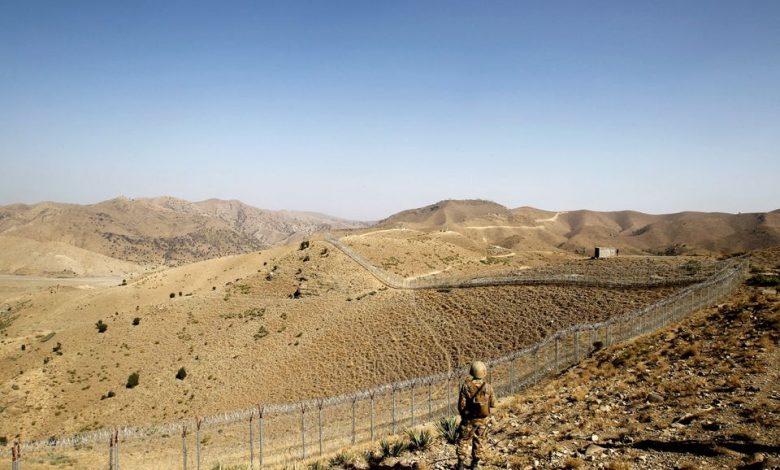Speaking in an interview with the website of the Strategic Council on Foreign Relations, Mohsen Rouhi Sefat referred to the recent terrorist acts along the Durand Line and strengthening of the Pakistani army’s military operations and stated: The tensions over Durand Line are, in fact, related to the border and geopolitical differences between Afghanistan and Pakistan and have little to do with the governments in power in those countries. Such differences are so old that they have been inherited from generation to generation by different governments.
Historical causes of tensions in Durand Line
Stating that those disputes go back to the time when Britain ruled over India and Pakistan was part of its territory, and then India had disputes with the Afghan government, he pointed to the conflicts between the Afghan rulers with the British army and added: Finally, Britain tried to influence the Kabul government to establish a border between Afghanistan and British India, known as the Durand Line. Of course, that plan was rejected by the Afghan parliament. The Pashtuns live in that line, who did not allow the division of the land, and that demarcation did not create any separation in practice and remained on paper.
The international affairs analyst added: This region has been known as the “free land” since the time of British India, and its people have always fought against the central government. With the formation of the Pakistani government, the people of the region continued to disobey the central government, and after a long period of conflict and negotiation, accepted that the law of Pakistan would not be enforced in the region, and that its flag would not be hoisted, but the Pakistani government would rule over the paved road there.
Rouhi Sefat reminded: The Kabul government has always claimed that the Pashtun people on both sides of the Durand Line are part of Afghanistan and in the past, the winter capital of Kabul was in Peshawar, which is also a true claim.
Referring to the continued tensions over Durand Line in various historical periods, the international affairs expert explained: When the Mujahideen came to power in Afghanistan, the Pakistani government expected the Mujahideen government to recognize the line in respond to the 10-year aid it had given them against the Red Army occupation and end the border conflict, but it was a matter of dignity for the people of Afghanistan and even governments that had close ties with Pakistan did not succumb to it.
Taliban’s position on Durand Line
He said: Pakistan was very sorry about the matter and tried to bring the Taliban to power as a government in Afghanistan to accept this border line; but Mullah Omar did not succumb to it either, as he knew he would not be supported by the people. This wound has continued in the relations between the two countries so far and one of the reasons for the failure of the United States in Afghanistan was the same old wound with Pakistan and the Kabul government’s distrust of Islamabad.
Rouhi Sefat referred to Pakistan’s desire to control the transit of members of the Pakistani Taliban movement to Afghanistan and continued: Pakistan has been fencing off areas known as the Durand Line for about three years, without the presence of the Afghan side. This issue has been protested by Afghanistan and now we are witnessing such protest by the Taliban soldiers. Clashes broke out in some areas and parts of Pakistan’s border fences on the Durand Line were destroyed by the Taliban.
He cited competition over the region’s water resources as another issue that added to the tensions, noting: In recent years, no dams have been built on rivers flowing into Pakistan, and if Afghanistan is embroiled in war and instability, there will be no opportunity for such development measures.
The former Iranian diplomat referred to the protests of the nomads of Afghanistan and Pakistan against the fencing and said: In the free zones, extremist groups have been present since the war in Afghanistan for the past forty years and there is no control over them by the central governments. In fact, those groups have a safe and out of reach place in those areas where they can carry out their activities.
Stressing that in the current situation, management of tensions in the region has international, regional and domestic dimensions, Rouhi Sefat stated: Pakistan, on the one hand, has border tensions with India and is trying to maintain Afghanistan as its strategic outcome to India. Therefore, it is interested in having a high level of influence in the Kabul government so that they do not clash with New Delhi against Islamabad.
The international affairs expert stressed the importance of establishing peace between India and Pakistan in the relations between Pakistan and Afghanistan and continued: It seems that in the current situation, we will see the continuation of regional rivalries and differences between the three countries. Although the presence of the Taliban has reduced tensions and mistrust between Afghanistan and Pakistan, it cannot be expected to resolve the dispute altogether; because nationalist sentiments among Pashtuns prevent even the Taliban from interacting with Pakistan with peace of mind and with generosity.
He stressed that the Taliban could not treat Pakistan against their ethnic sentiments. Increased Pakistani military activity in the region and Taliban discontent is an issue the two sides will manage and try to keep tensions from escalating.










0 Comments